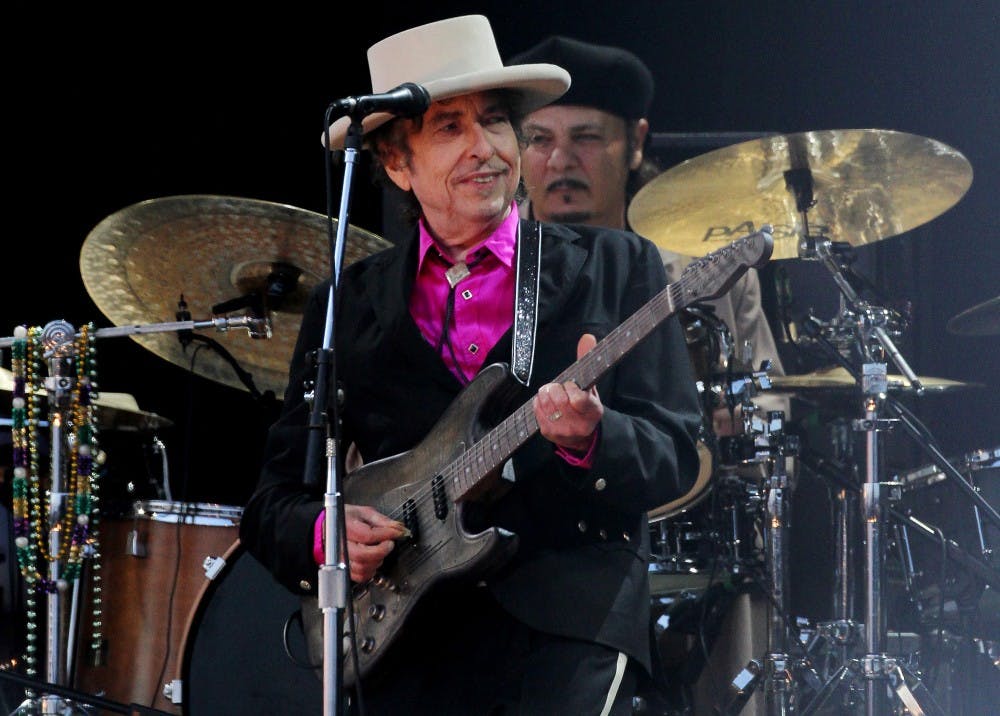In medieval times, bards composed eulogies set to music, and the Welsh festival “eisteddfod” has combined literature and music since the 12th century. In ancient Greece, lyric poetry was often accompanied by the lyre. Somali oral storytelling tradition also bridged poetry and song while, in South Asia, praise poetry did the same.
Early history presents poetry and song as intertwined, but since then, a rift has formed between the two.
Poetry now finds its place in the classroom or in the hands of scholars. Yet lyrics are for the masses, rarely studied except through a sociological or anthropological lens. Centuries since the great bards of the past, poetry has become a cornerstone of literature, and lyrics are seen as pop culture mush, creating a divide that is unfair to both poetry and lyrics.
Considering lyrics easier to write, less valuable and not worthy of literary merit or the precious label of “poetry” belittles lyrics that are just as deserving of respect, even while lyricists rake in awards that were once reserved for conventional poets.
Bob Dylan is one singer-songwriter best known for crossing the bridge between lyricist and poet, as his work has been compared to that of English Romantic poet John Keats. Dylan won a Nobel Prize in Literature in 2016.
Most recently, Kendrick Lamar won a Pulitzer Prize for Music for "DAMN.", a record that easily fits along the lines of poetic tradition. Once a poet, singer-songwriter Leonard Cohen’s work won him multiple literary awards, including a Prince of Asturias Award for literature. Even John Lennon tread literary waters with his volume of nonsense verse, “In His Own Write.”
On the flipside, just as lyrics can be poetic, poetry can be lyrical. Artists Gabriel Kahane, Michael Zapruder and Jason Collett have, for example, made setting poetry to music their business.
The divide between lyrics and poetry allows the work of lyricists to go unrecognized by scholars and the work of poets to become less accessible. A general feeling that lyrics are for the masses and poetry is for some sort of elite leaves poetry to only the creme de la creme of literary fans and out of the hands of other readers who are just as capable of appreciating poetry if they only give it a shot.
English poet — and Arctic Monkeys fan, it’s worth noting — Simon Armitage once wrote, “Songs are not poems ... In fact, songs are often bad poems. Take the music away and what you're left with is often an awkward piece of creative writing full of lumpy syllables, cheesy rhymes, exhausted cliches and mixed metaphors."
This is a common view among poets and adds to the pretentiousness often attached to poetry. And while Armitage may be right in that lyrics may come across as cheesier or less meaningful without the music behind them, this does not mean lyrics are lesser literature.
In poetry, a poet must wield words with precision. Every choice carries meaning, even down to the meter and rhythm. The same thing goes for great music, in which both lyrics and music involve countless deliberate choices.
In his book “The Poetry of Pop,” literary critic Adam Bradley encourages readers to celebrate how “the dance of word and music makes songs act on our imagination and emotions just as the best poems do.”
In other words, it’s a tango between words and music that makes lyrics meaningful. If you take one away, you lose some of the meaning, which is why many songs may seem less literary or complex when stripped from music.
Lyrics are surrounded by deliberate musical information from melody to instrumentation to the tone of a singer’s voice. All this information contributes to meaning. Poetry, on the other hand, takes place in the context of silence.
Lyrics should not have to stand apart from music and be expected to have the same complexity as poetry, because music is the environment the words live in. Instead of treating lyrics as technically the same as poetry, we should view them in their natural habitat and appreciate them for what they are.
So are lyricists poets?
They can be, but that does not mean lyrics are poetry. Lyrics make up a literary category unto itself, and lyricists and poets create in different environments.
Though we shouldn't try to see their work as the same, we should remember that lyrics are deserving of the same level of respect and literary consideration. So, let’s stop being so pretentious about what warrants literary merit.






